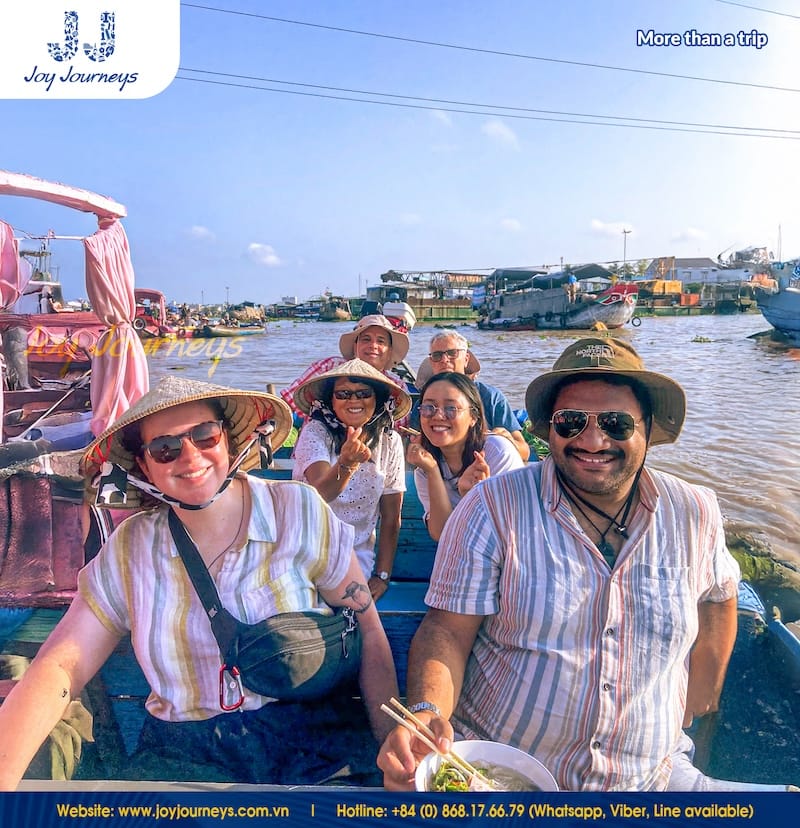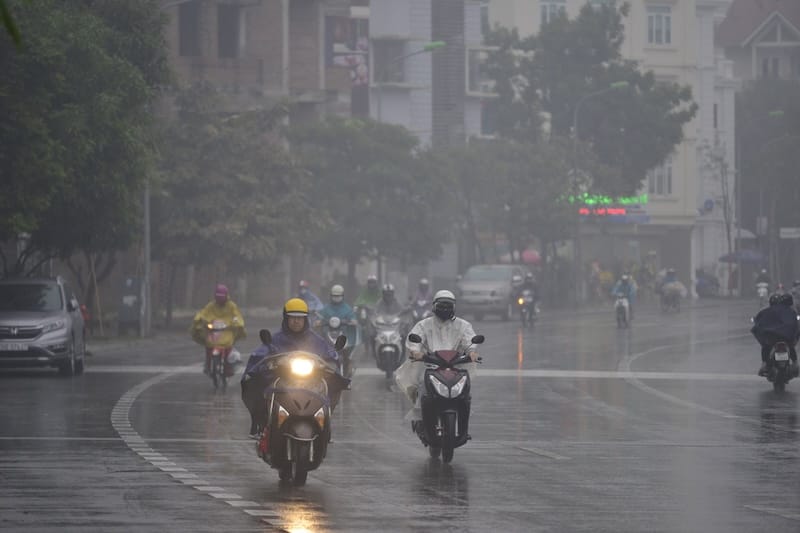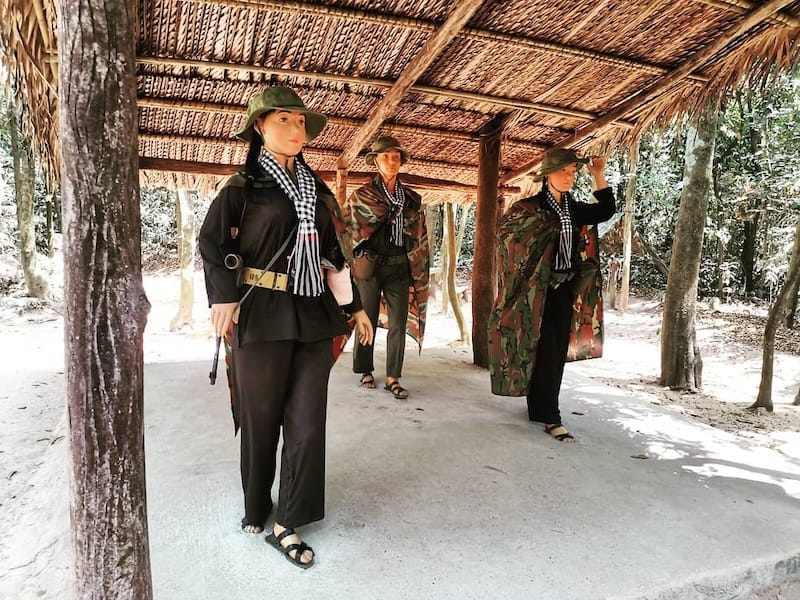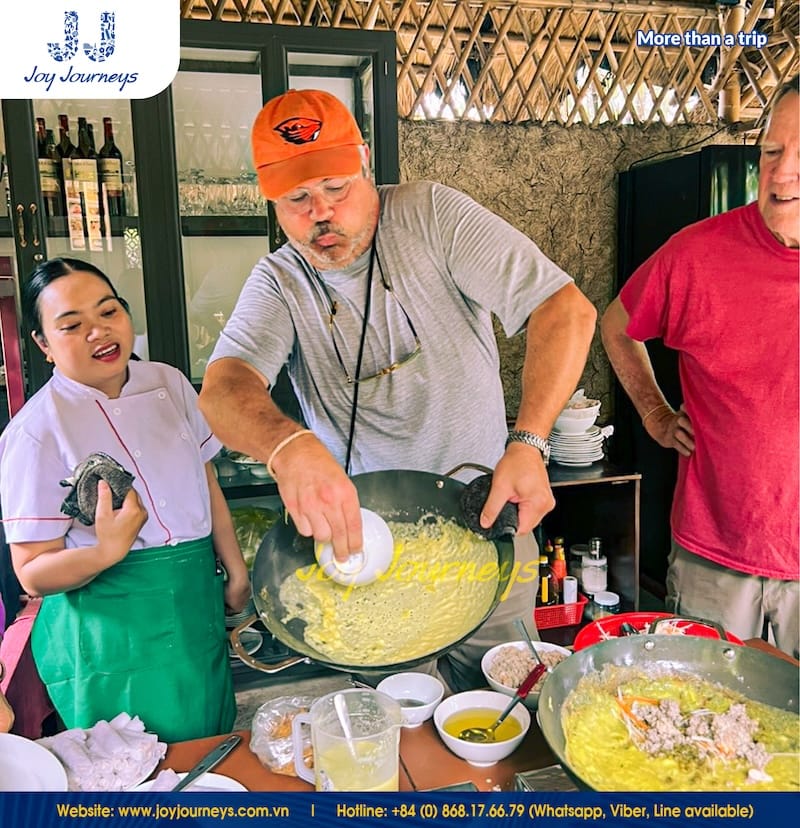Vietnam is undoubtedly one of Southeast Asia’s most captivating destinations, offering stunning landscapes, rich history, and incredible cuisine. However, before you book that flight, it’s essential to understand the reasons not to go to Vietnam that some travelers encounter. This article isn’t meant to discourage your travel dreams but to provide honest insights so you can make an informed decision and arrive well-prepared for what awaits.
Every destination has its challenges, and Vietnam is no exception. By understanding these potential hurdles, you’ll be better equipped to navigate them and enjoy your journey to the fullest. Let’s explore the honest realities of traveling in Vietnam.

Contents
- 1 Top 10 reasons not to go to Vietnam
- 2 2. You Need to Be Aware of Vietnam Travel Scams
- 3 3. The Weather is a Tale of Three Climates
- 4 4. The Language Barrier is Real Outside Tourist Hubs
- 5 5. Pollution (Air & Noise) is a Factor in Big Cities
- 6 6. Food and Water Safety Requires Caution
- 7 7. It Can Be a Sensory Overload
- 8 8. Ethical Tourism Concerns
- 9 9. The Visa Process Can Be Confusing
- 10 10. Emotional Historical and War-Related Sites
- 11 Vietnam Tourism: Navigate challenges with Expert Guidance
- 12 Conclusion: Embracing Vietnam’s Beautiful Contradictions
Top 10 reasons not to go to Vietnam
1. The Traffic Can Be Intense and Overwhelming
One of the most significant Vietnam travel problems visitors face is the chaotic traffic, particularly in major cities. Ho chi minh city traffic problems are legendary among travelers, with millions of motorbikes weaving through streets in what appears to be organized chaos. Hanoi faces similar challenges, where the constant flow of scooters, cars, and buses can be overwhelming for first-time visitors.
The seemingly random nature of traffic flow actually follows its own logic that locals understand intuitively. However, for newcomers, simply crossing the street can feel like a life-threatening adventure. The noise level is constant, and the fumes from countless vehicles contribute to air quality issues.
How to cope: Master the “walk slowly and predictably” method when crossing streets – locals will navigate around you. Use ride-hailing apps like Grab for affordable and safe transportation. Consider staying in quieter neighborhoods away from main thoroughfares, and always remain alert when walking near traffic.
2. You Need to Be Aware of Vietnam Travel Scams
Like many popular tourist destinations worldwide, Vietnam travel scams exist and can impact your experience if you’re unprepared. Common schemes include taxi drivers with rigged meters, cyclo drivers overcharging tourists, fake tour agencies, and vendors placing “free” souvenirs in your hands before demanding payment.
While these experiences don’t represent the majority of interactions you’ll have with locals, awareness is crucial for protecting yourself and your budget. The good news is that most scams are easily avoidable with basic precautions.
How to cope: Use reputable taxi companies, book tours through well-reviewed agencies, always agree on prices beforehand, and practice saying “no” firmly but politely. Research common scams before your trip and trust your instincts if something feels off.
3. The Weather is a Tale of Three Climates
Vietnam’s elongated geography creates distinct climate zones that can complicate trip planning. The North experiences a genuine winter with temperatures dropping significantly, the Central region faces a typhoon season, and the South maintains tropical wet and dry seasons year-round.
This climate diversity means what to avoid when traveling to Vietnam includes visiting certain regions during unfavorable weather periods. Packing becomes challenging when your itinerary spans multiple climate zones, and timing your visit requires careful consideration of regional weather patterns.
How to cope: Research specific regional weather for your travel dates rather than relying on general “Vietnam weather” information. Pack layers and versatile clothing items. Consider focusing on one region per trip or timing your visit to coincide with favorable weather in your priority destinations.

4. The Language Barrier is Real Outside Tourist Hubs
One of the reasons not to go to Vietnam is the language barrier. Vietnamese is a tonal language that presents significant challenges for English speakers. While English is increasingly common in tourist centers like Ho Chi Minh City, Hanoi, and Hoi An, it becomes sparse in rural areas and smaller towns.
This language barrier can lead to miscommunication in restaurants, transportation, and shopping situations. Simple tasks like ordering food or asking for directions can become frustrating experiences without basic language skills or translation tools.
How to cope: Download offline translation apps like Google Translate with camera function for menus and signs. Learn essential phrases like “Xin chào” (hello), “Cảm ơn” (thank you), and “Bao nhiêu tiền?” (how much?). Consider hiring local guides in areas where English is limited.
5. Pollution (Air & Noise) is a Factor in Big Cities
Pollution in Hanoi and Ho Chi Minh City significantly impacts air quality, particularly during peak traffic hours. The constant noise from motorbikes, construction, and city life can be exhausting for visitors from quieter environments.
Air pollution levels often exceed WHO recommended standards, and the perpetual noise can disrupt sleep and increase stress levels. This environmental challenge is particularly difficult for travelers with respiratory issues or those sensitive to noise pollution.
How to cope: Wear face masks like locals do, especially during peak traffic hours. Book accommodation in quieter alleys away from main streets. Plan regular escapes to rural areas or coastal regions for cleaner air. Consider air-purifying devices for your hotel room.
6. Food and Water Safety Requires Caution
Vietnam’s incredible street food scene is a major draw, but it can also be a source of digestive issues for unprepared travelers. Many visitors experience stomach upset when they aren’t accustomed to local bacteria and food preparation methods.
Tap water isn’t potable throughout the country, and ice in drinks may come from questionable sources. While most travelers navigate these challenges successfully, food and water safety requires constant vigilance.
How to cope: Eat at busy stalls with high turnover, ensuring food is freshly cooked and hot. Only drink bottled or properly filtered water. Avoid ice unless you’re confident it’s made from clean water. Start with milder dishes and gradually work up to spicier, more adventurous options.
7. It Can Be a Sensory Overload
Vietnam bombards visitors with constant stimulation – the aroma of street food mixing with exhaust fumes, the cacophony of traffic and vendors, and the visual chaos of bustling markets and crowded streets. This culture shock in Vietnam can be exhilarating for some but overwhelming for others.
The high-energy pace of Vietnamese city life rarely slows down, which can be exhausting for travelers seeking relaxation or those who prefer quieter environments. This sensory intensity is part of Vietnam’s charm but can lead to fatigue and stress.
How to cope: Schedule regular downtime in your itinerary. Find quiet cafes or parks for breaks. Don’t try to see everything in one day. Consider staying in homestays or quieter accommodations outside city centers. Practice mindfulness techniques to manage sensory overload.
8. Ethical Tourism Concerns
Popular destinations like Ha Long Bay face overcrowding and environmental degradation due to mass tourism. Some hill tribe tours raise ethical concerns about exploitation and cultural commodification. These issues make many conscious travelers question is Vietnam worth visiting from a sustainability perspective.
The rapid growth of tourism has strained infrastructure and natural resources in some areas. However, the rise of responsible tourism options provides alternatives for ethically-minded travelers.
How to cope: Research tour operators with strong ethical reputations and environmental commitments. Consider visiting less-crowded alternatives to popular destinations. Support local communities through responsible tourism choices. Choose accommodations and activities that prioritize sustainability.
9. The Visa Process Can Be Confusing
Vietnam’s visa requirements frequently change, and the process can be confusing for travelers. Rules for visa exemptions, e-visas, and visas on arrival vary by nationality and can be updated without much notice. The risk of using unofficial or scam visa websites adds another layer of complexity.
How to cope: Always use the official government immigration website for e-visas. Double-check requirements specific to your passport. Apply well in advance of your travel dates. Avoid third-party visa services that may be unreliable or overpriced.
10. Emotional Historical and War-Related Sites
Vietnam’s war history is preserved in museums and sites throughout the country. Places like the War Remnants Museum and Hoa Lo Prison present perspectives on the American/Vietnam War that may be confronting for Western visitors. These aren’t traditional tourist attractions but important historical sites.
This isn’t necessarily a “con” but rather something to be emotionally prepared for. These sites offer valuable historical context but can be sobering experiences that require mental preparation.
How to cope: Visit with an open mind and respect for different historical perspectives. Be prepared for emotional responses. Consider timing these visits appropriately within your itinerary. Research the historical context beforehand to better understand what you’ll encounter.

Understanding these potential challenges is the first step toward a successful Vietnam journey. While these issues might seem daunting, experienced travelers and local experts can help you navigate them effectively. This is where professional tour operators like Joy Journeys become invaluable.
Joy Journeys specializes in creating authentic Vietnamese experiences while helping travelers avoid common pitfalls. Their local expertise and carefully curated tours address many of the challenges mentioned above, providing safe, culturally sensitive, and memorable adventures throughout Vietnam.
Mekong Delta Adventures
Joy Journeys offers comprehensive Mekong Delta tours that showcase the region’s natural beauty and cultural richness. These tours provide authentic experiences while ensuring Vietnam safety through professional guides and reliable transportation. Visitors can explore floating markets, traditional villages, and pristine waterways while learning about local customs and traditions from knowledgeable guides who speak English fluently.
Ho Chi Minh City Exploration
Their Ho Chi Minh City tours address urban challenges by providing structured itineraries that help visitors navigate the city’s complexity. These tours include visits to historical sites, local markets, and cultural attractions while providing practical Vietnam travel advice for independent exploration. Professional guides help visitors understand local customs and avoid common tourist traps.
Cu Chi Tunnels Historical Experience
The Cu Chi Tunnels tours offered by Joy Journeys provide historically accurate and emotionally sensitive experiences. These tours prepare visitors for the emotional weight of Vietnam’s war history while providing educational context that enhances understanding. Professional guides ensure respectful exploration of these significant historical sites.
Conclusion: Embracing Vietnam’s Beautiful Contradictions

The cons of visiting Vietnam discussed in this article are often two sides of the same coin that makes the country so captivating. The chaotic traffic reflects Vietnam’s vibrant energy and rapid development. The need for street food caution results from an incredible culinary scene that offers some of the world’s best flavors. The sensory overload comes from a culture that lives life to the fullest.
Is Vietnam safe for tourists? Yes, with proper preparation and awareness. The challenges outlined here aren’t insurmountable obstacles but rather aspects of travel that require planning and adaptability. Vietnam rewards prepared, open-minded, and adventurous travelers with experiences that will last a lifetime.
These Vietnam travel tips and honest insights should help you determine if Vietnam aligns with your travel style and preferences. Remember that many of these challenges can be minimized with good planning, local expertise, and realistic expectations.
Vietnam isn’t for everyone, and there are genuine reasons not to go to Vietnam for some travelers. But for those who embrace its complexities, it offers rewards that few destinations can match. The key is honest preparation, cultural sensitivity, and the willingness to step outside your comfort zone. With these tools and the right guidance, Vietnam’s challenges become part of an incredible adventure story you’ll treasure forever.
Ready to experience Vietnam’s wonders while navigating its challenges with confidence? Contact Joy Journeys for expert guidance and carefully crafted tours that maximize your enjoyment while minimizing common travel difficulties. Their local expertise and commitment to authentic experiences ensure your Vietnam adventure will be both safe and unforgettable.



Related Posts
Saigon’s “Flower Market Replica”: Where To Find Them
Ho Chi Minh City’s floral charm is not limited to its bustling wholesale markets. Imagine wandering through a place where vibrant petals, fragrant blooms, and the spirit of traditional Vietnamese markets come alive—without the overwhelming crowds. A flower market replica captures that magic, blending the beauty of fresh flowers with the charm of a curated, […]
Is it Safe to Travel to Vietnam Right Now? A Complete 2025 Guide
Vietnam has emerged as one of Southeast Asia’s most captivating destinations, drawing millions of visitors annually with its rich culture, stunning landscapes, and incredible cuisine. However, many travelers still ask: Is it safe to travel to Vietnam right now? This comprehensive guide provides you with everything you need to know about Vietnam travel safety in […]
Ho Chi Minh Cu Chi Tunnels Tour: The Ultimate Guide
The Cu Chi Tunnels stand as one of Vietnam’s most remarkable historical sites, offering visitors a profound glimpse into the ingenuity and resilience displayed during the Vietnam War. For travelers, a Ho Chi Minh Cu Chi tunnels tour represents an essential experience that combines education, adventure, and deep cultural understanding. This comprehensive guide will help […]